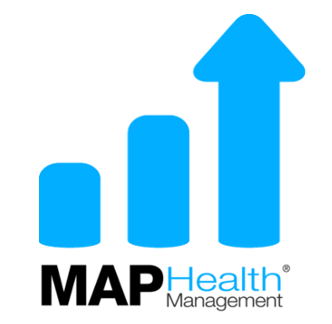The Benefits of Peer Support Providers in Addiction Treatment
April 1, 2019 Thomas G. Kimball, PhD
Published in The Doctor Weighs In, April 1, 2019. View the Article Here
 Peer Recovery Support Specialists (PRSSs), also known as peer support providers or peer recovery coaches, are an emerging specialized group in the healthcare space that fill a needed gap in the addiction care continuum.
Peer Recovery Support Specialists (PRSSs), also known as peer support providers or peer recovery coaches, are an emerging specialized group in the healthcare space that fill a needed gap in the addiction care continuum.
PRSSs are individuals in recovery from substance use disorders (SUDs). These individuals have been specially trained and certified to take on a specific and unique role in recovery support and relapse prevention.
Several states have started certification programs creating a professional role with defined parameters to operate within for individuals who meet certain criteria.
Recognizing the value of peer support providers
Historically, peer providers have been relegated to volunteer roles. Increasingly in the last decade, these highly trained and competent peers are being hired in a variety of different health care settings, non-profits, and other recovery-oriented systems.
Professionals providing recovery services are seeing the benefits of bringing those with lived experience of severe substance use disorder and recovery onto their team as paid professionals.
PRSSs not only bring their personal experiences and insights but also a level of compassion, hope, and honesty onto any team providing treatment and recovery services.
Today, many states through Medicaid as well as other third-party payers have reimbursement mechanisms in place to bill for these peer-provided services.
What Do PRSSs Do Differently?
Suffering from a severe substance use disorder and attempting a recovery pathway is not easy. Having a coach or mentor that has “been there” and “done that” is influential to those starting the journey. And, it is desperately needed as people move through the most vulnerable times of recovery, typically the first 12-18 months.
PRSSs have a unique and powerful professional lane to run in that is different from therapists, counselors, sponsors, medical providers, and/or clergy. PRSSs are wise role models, motivators, allies, resource brokers, risk monitors, advocates, and educators.
In the words of William White (White and PRO-ACT Ethics Workgroup), an elder statesman of the recovery field, “Many people have acquired experiential knowledge about recovery, but only those who have the added dimension of experiential expertise are ideal candidates for the role of recovery coach.”
There are several benefits that utilizing PRSSs can bring to the addiction treatment spectrum.
Benefits of adding PRSS to the addiction treatment spectrum
1. Lived Experience with Recovery and SUD
As mentioned above, one of the key benefits a PRSS brings to the professional treatment setting is their lived experience with SUD recovery.
This experience helps PRSSs better relate to individuals following a similar recovery journey. It also allows them to have a more understanding and intuitive approach that can help individuals navigate the myriad challenges one can face on that path.
2. Early Intervention and Relapse Prevention
PRSSs are intuitively good at preventing relapses. They are uniquely able to recognize red flags that may signal that someone is on the path to using substances again. This insight allows them to provide themselves or guide a person toward important supports before a relapse or use event occurs.
3. Extensive training and certification process
PRSSs must meet certain criteria and undergo an extensive training and certification process:
- PRSSs can be certified at both the state and national levels
- National certification can be obtained through NAADAC, the Association of Addiction Professionals. Qualification for certification can be found here https://www.naadac.org/ncprss.
It includes:
- Being in recovery for at least 2 years
- Multiple hours of experience supporting others under supervision
- Trainings on topics such as peer recovery, co-occurring disorders, ethics, and HIV (NAADAC)
The specific criteria combined with the robust training and certification process helps develop a larger amount of professional trust with SUD individuals and other healthcare professionals.
4. Helping family members and primary supports
Another benefit of using PRSSs to extend the continuum of care is their ability to provide meaningful direction and support to family members of those in recovery. PRSSs can be particularly helpful to understandably anxiety-ridden family members by assisting them in their own recovery pathway.
This consistent contact with an individual’s primary supports and family provides a more holistic approach to the care continuum. Additionally, a PRSS might also help temporarily fill the role of primary support for individuals that do not have family or do not maintain contact with their family.
5. Reduction of Cost
PRSSs can provide a reduction of overall cost from traditional extended care options. This reduction of cost can be experienced throughout the treatment spectrum in a variety of ways.
For instance, PRSSs are trained to deliver support remotely through telehealth or video-conferencing platforms. This can save patients out of pocket travel costs and save providers valuable time and space operating their facilities.
Additionally, as mentioned previously, many states have billing reimbursement mechanisms through Medicaid, as well as other third-party payers, for the services provided by PRSSs which reduces the overall cost impact of providing care.
6. Longitudinal SUD treatment and outcomes data
In addition to recovery support, PRSSs can also gather meaningful data over the period of time they are offering support.
PRSSs have their own unique experiences with SUD. They are also open to using these experiences to create connections. Because of this, they are able to build trust with the individuals they support. This type of trust increases the probability of effectively providing needed support while also gathering more accurate data with the consent of the person in recovery.
Also, PRSSs stay in contact with individuals in recovery wherever they may be. This will generate new data about the overall recovery process that treatment centers, care providers, and the industry as a whole can use to create long-term care protocols and data markers. This broader look at the recovery overtime offers the potential of revolutionizing and improving care across the spectrum of addiction treatment.
7. Augmenting Treatment
Collectively, we still don’t know a great deal about recovery and how a person stays in recovery long-term. PRSSs, due to their skill and the cost-effectiveness of their services, can work in tandem with treatment care professionals and providers to extend the continuum of care.
For example, a common offering of treatment providers is recovery alumni groups and outreach. Alumni groups often provide fun activities and group meetings for those who successfully complete their program. PRSSs can augment that support through individual direct contact.
In addition, it is often difficult for alumni groups to follow those who do not remain in close proximity to the treatment facility. PRSSs, however, can provide ongoing recovery support via telehealth and video-conference measures.
Do Peer-Delivered Recovery Support Services Work?
A research article by Bassuk, Hanson, Greene, Richard, and Laudet (2016), reports on their systematic review of nine studies examining the effectiveness of peer recovery support services.
Overall, these authors found that peer support was beneficial to participants and positively contributed to recovery outcomes.
More research is needed to truly understand the benefits of having PRSSs work with those in recovery. Nevertheless, these findings are promising.








